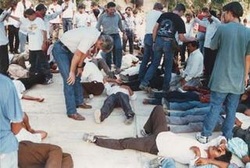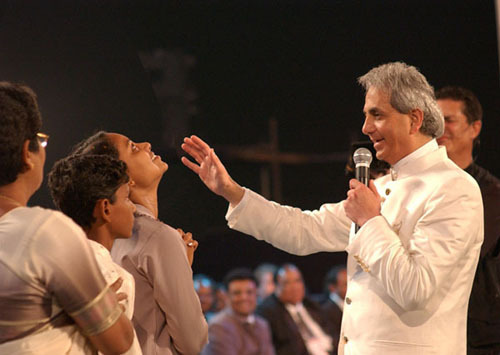 "When the day of Pentecost had come, they were all together in one place. And suddenly from heaven there came a sound like the rush of a violent wind, and it filled the entire house where they were sitting. Divided tongues, as of fire, appeared among them, and a tongue rested on each of them. All of them were filled with the Holy Spirit and began to speak in other languages, as the Spirit gave them ability." (Acts 2: 1-4). Um, this is scary stuff. I think if that happened to me I'd be curious and maybe a little concerned. This is the original passage upon which contemporary Pentecostals rest their claims to receiving the "gift" of glossolalia- speaking in tongues. My first observation is that the passage says that the Apostle actually SPOKE LANGUAGE, simply different ones. In other words if this happened to me today I'd be speaking in Russian or Japanese- languages with which I have no relationship. Well, I guess I know "sayonara." Anyway, even a plain reading of the text without recourse to advanced literary theory clearly states they were speaking languages. Every review I've ever seen, which Professor Shepherd acknowledged, notes that contemporary Pentecostals, when "fallen out" make guttural sounds, gibberish, and non-linguistic pre-language. This affords the individual an opportunity to receive the "gift" and thus complete an intricate social system of baptism that indicates the difference between an insider (called a "Saint") and an outsider (called a "Sinner"). The possession by the loa of the Vodou devotee functions in much the same way- to provide an individual a subjective way to experience god and to cement one's insider status. I have never experienced this form of prayer. I am leery of the fuzzy margins of where the individual ends and God begins because of course in my tradition there is no separation of the two requiring a reunification of any kind- certainly not in a public dramatic way. To me this type of display is a detachment of the brain from an animalistic sensory experience and is thus grounded purely in physical expression. When the politics of initiation and social status are layered on top of that issue then the "authenticity" comes into real question. My former Ph.D. dissertation adviser, Dr. Elaine Lawless, writes "Specialized language serves further to mark the group to outsiders, to delineate boundaries that keep groups distinct, and to intensify group cohesion and solidarity. A special language must be close enough to the mother language to make sense to the members of the group and simple enough for the novice to pick up fairly quickly. No tome is set aside for the teaching of this specialized language, but its constant and repetitive use in the verbal messages of the group members serves to teach the newcomer what the words mean and where and how it is appropriate to employ them" ("The Special Language of Pentecostalism" in God's Peculiar People, University of Kentucky Press, 1988). For me, too many levels of questions lead to avoidance.
1 Comment
So much time seems to be spent in the Medieval practice of determining how many angels fit on the head of a pin as a way of discovering the ontological nature of God. Today there appear to be a couple of camps devoted to the nature and practice of belief in God, the traditional "Religious" track and the somewhat reactionary response to the track, the "Spiritual."
Adherents to the traditionalist system (mostly) take an approach to God that stresses structure, dogma, social church context, and a system of belief that usually stresses God "out there" somewhere (with some small exceptions such as panentheistic religions). This group seems rather suspicious of the historical newcomer group and its view of them can be seen here: http://religion.blogs.cnn.com/2012/09/29/my-take-im-spiritual-not-religious-is-a-cop-out/ The "reactionary" camps consists of those who see themselves as practicing a spiritual perspective but who don't adhere to a traditional religious path to do so. The reasons for not doing so are as varied as the stars in the sky. Perhaps some fall into the laziness outlined in the blog above. Others are emigrants fleeing whatever pain was inflicted upon them in their experiences with the larger organized structures. Whatever. To me the distinctions are irrelevant and both sides have things to offer. Much of this has more to do with our obsession to label and categorize and control than it does about experiencing authentic relationships with ourselves, our deity(ies), and finding the practices that bring us to happiness, satisfaction, enlightenment. For me that is the bottom line- what is advancing me? What can I glean from X experience? Religions offer history and thousands of years of experience in the nature of metaphysical ideas. Spiritualists for lack of a better term offer the ideas of freedom from structure and individual thought. The whole thing is kind of like a mini-Reformation. For me the truth lays in transcending both and incorporating the underlying lessons. |
AuthorAnthony Phillips, MA, JD Archives
July 2013
Categories |


 RSS Feed
RSS Feed
